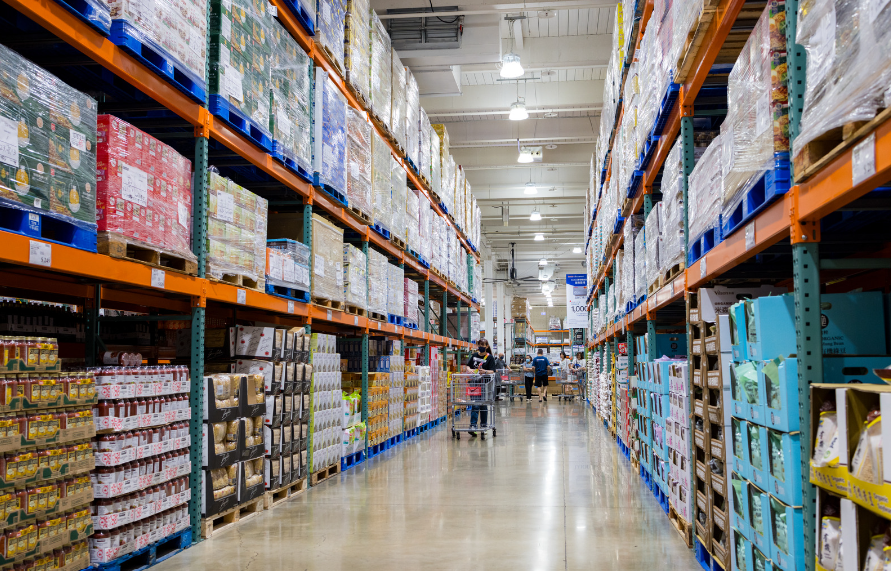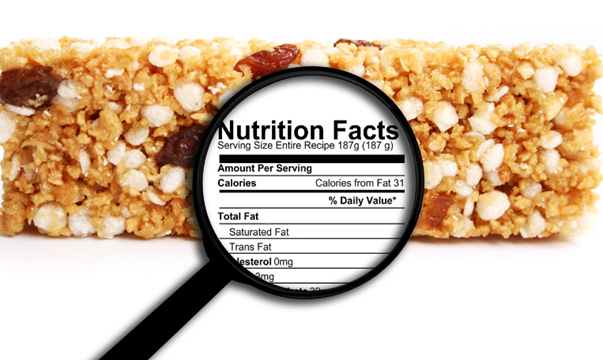03 July 2024
Lobbying for Good: Five ways to create a healthier and more sustainable food industry

For this week’s Lobbying for Good blog, our Project Officer Alice English spoke to Andrew Selley, CEO of Bidfood UK, to find out what their priority policy asks are for the new government.
What support do you need from the government to help you deliver on your health and sustainability strategies?
From our perspective, what we’re really looking for is government to create a level playing field. Sometimes health and sustainability strategies can add cost in the early stages, and if businesses pursue them alone, they could be uncompetitive, so it’s important that all businesses are incentivised or encouraged to do the right thing. That could be via legislation, such as the sugar tax, or via guidelines.
We support mandatory public reporting by food businesses against health and sustainability metrics — delivering the promises of the Food Data Transparency Partnership, a partnership between government, industry and experts, aiming to improve the availability, quality and comparability of data in the food supply chain. This would de-risk business investment in more healthy and sustainable food offerings.
It would also be helpful if a strategy was agreed around identifying healthier food and drink products, for example, using the Nutrient Profiling Model, so that businesses have a consistent way of reporting as well as communicating to customers which products are more, or less, healthy.

Bidfood have done a lot of work around sugar and salt reduction, in line with the 2020 sugar targets and ongoing salt targets. However, to keep momentum, these initiatives should be updated where necessary, taking into consideration progress made since the targets were last released as well as known technical challenges and solutions.
We also need more guidance and case studies around sugar and salt reduction, to assist nutrition professionals and food companies in reformulating products.
"We want to be a positive force for change so we will pursue our strategies in the absence of regulation, but this is not necessarily true for every business, so it’s in the interests of us all for the government to level the playing field"
What do you think are the immediate policy actions the new government can take in their first 100 days of government to help the food industry to progress on health and sustainability targets?
If the new government is serious about health and sustainability, it really has to focus on public sector catering as that is where it can have an immediate impact.
For the health and wellbeing of our children (and therefore the future benefit of the country) they should look at levelling-up free school meal funding to catch up with recent food and minimum wage inflation.

"Fundamentally, we want reassurance that the government takes our food system seriously, because we haven’t felt that recently. We need plans, timescales, commitments and budgets rather than just general statements"
What are the longer-term changes you would like to see government make over the next five years to enable the food industry to build a healthy and sustainable food system?
We need a long-term food plan that brings together food security, biodiversity and net zero ambitions. They instigated a National Food Strategy (NFS) review with Henry Dimbleby which many food businesses and wider stakeholders contributed to, and then did nothing with it.
The vast majority of carbon in the food chain lies in the types of products we sell and the way they are reared and produced (i.e., Scope 3 emissions). There is no strategy for an industry wide approach to delivering these reductions. The government could start with an agreed standard for carbon labelling and a timeline for it becoming a mandatory requirement.
At the same time, they should look at investment incentives to increase locally, UK-grown products that address issues like biodiversity loss, food miles, carbon emissions, food security and healthy eating simultaneously.
Is there anything the current government has introduced that has been particularly useful and you would urge the new government to continue?
I think the current government have talked a lot but not done anything substantial since the Soft Drinks Industry Levy (SDIL) in 2018. A new government should take forward the recommendations from the NFS, to build on the success of the SDIL, encourage businesses to reformulate other food and drink categories and rebalance the cost of more healthy and less healthy foods.

Other industry guidelines such as the School Food Standards and the 'Healthier and more sustainable catering' toolkit should continue to be updated and enforced. Currently there are a lot of inconsistencies across these sets of standards, making it hard to comply with them all and create healthier and more sustainable menus.
Are you involved in any other initiatives to help push forward sustainability progress in business?
I am a commissioner on the Food Farming and Countryside Commission, so am fully supportive of the main areas that they are campaigning for change, namely:
- A healthier food system accessible for all
- Supporting farmers to be a force for change
- Developing a comprehensive Land Use Framework to make better decisions
I also collaborated on The Hope Farm Statement led by Paul Polman, asking the government to urgently develop a full review and strategic plan for food, farming and land use.
Bidfood is also member of the Better Business Act coalition, which aligns well with our values and our pursuit of a ‘Triple Bottom Line’ approach, i.e. measuring our success in three key areas: profit, people, and the planet.
To summarise, Bidfood’s 5 priority policy asks for the new government are:
- Level the playing field for businesses: delivering the FDTP and making it mandatory for companies over a certain size to set targets and report against health and sustainability metrics.
- Build on the National Food Strategy and implement a fully comprehensive, long-term food strategy that brings together food security, biodiversity and net zero ambitions.
- Build on the success of the SDIL, encouraging businesses to reformulate other food and drink categories and rebalance the cost of more healthy and less healthy foods.
- Agree a strategy for identifying healthy and unhealthy products, such as by using Nutrient Profiling Model to provide a consistent framework for businesses to communicate and report against.
- Increase funding for free school meals in line with food and minimum wage inflation.
About our Lobbying for Good blog series:
There are a growing number of food companies and investors who want Government to take a more proactive role in helping them deliver on their health and sustainability strategies. As we approach the general election, it is important to give those businesses and investors a platform and help to amplify their asks of Government.
In this blog series, The Food Foundation aims to highlight progressive voices within the food industry who - at the time of interview - we have identified as being leaders on specific areas within health and sustainability. We ask them what their vision is for a healthy and sustainable food system post-election and what specific actions the new Government should take in its first 100 days.
We hope their commitment to creating a fairer and more sustainable food system will continue into the future and that these blogs will inspire other business leaders to add their voices to the call for the new Government to regulate for positive change.

About Lobbying For Good
A growing number of food companies and investors want Government to take a more proactive role in helping them deliver on their health and sustainability strategies. As a new Government takes office, it's important to give those businesses and investors a platform and help to amplify their asks of policymakers.
In this blog series, we aim to highlight progressive voices within the food industry who - at the time of interview - we've identified as being leaders on specific areas within health and sustainability. We ask them what their vision is for a healthy and sustainable food system post-election and what specific actions the new Government should take in its first 100 days.
We hope their commitment to creating a fairer and more sustainable food system will continue into the future and that these blogs will inspire other business leaders to add their voices to the call for the new Government to regulate for positive change.


Alice joined the Food Foundation in January 2022. She has completed an MSc in Global Environmental Politics and Policy, focusing her research on food systems, with her final project investigating the barriers preventing the widespread adoption of Agroecology.
She has previously worked and volunteered at a range of environmental organisations, such as Greenhouse PR and the Climate Coalition, spent time working on organic farms and taken part in food systems research. She is particularly passionate about creating sustainable and fair food and farming systems.





